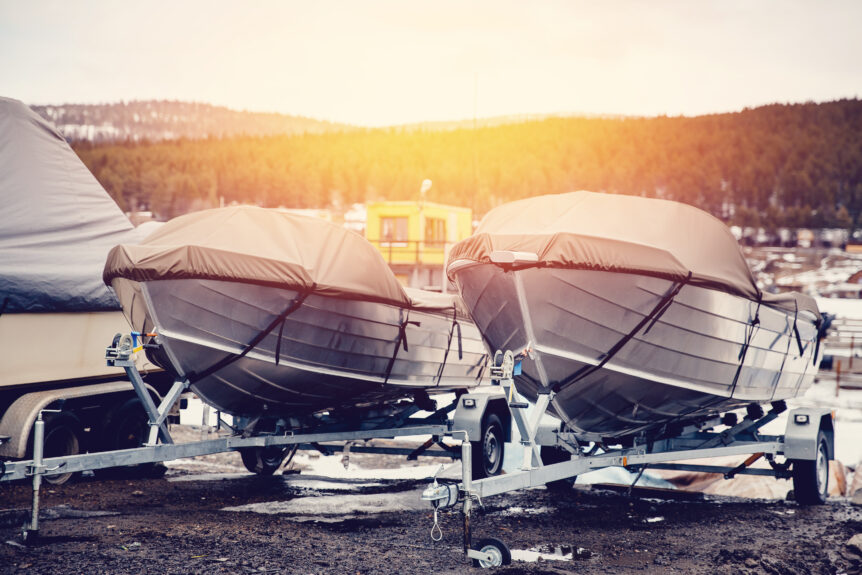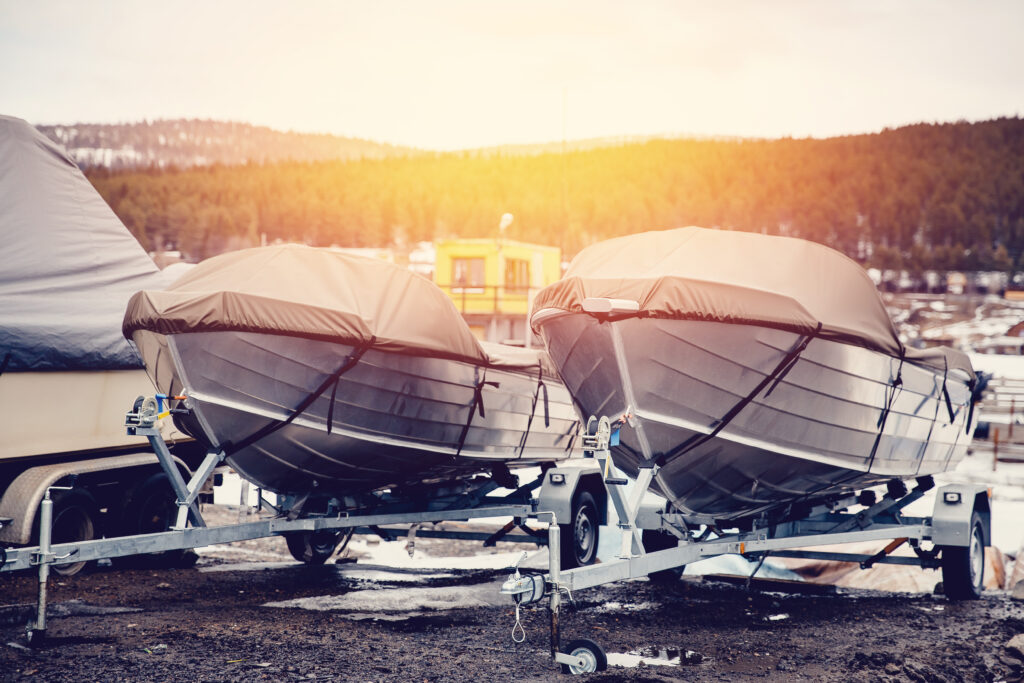It’s that time of year again. We must say goodbye to the warm summer evenings and hunker down for winter weather. One thing that comes with that is saying goodbye to our beloved boats for now. We have previously posted a blog about closing your summer home for the winter, but now we will focus on the process of winterizing your boat.
What is winterizing your boat?
Winterizing your boat is the process of getting it ready for freezing temperatures. Frozen water expands and creates pressure that can crack an engine, damage fiberglass, and cause other destruction to your boat. So, we must remove any water and moisture to prevent this. To help you safeguard your boat during the cold months ahead, we’ve prepared a comprehensive guide on winterizing your beloved vessel properly.
You may be thinking, “I live in a warm state; I don’t need to winterize my boat.” However, let’s take a look at the list of the top 10 states with the most winterizing claims, according to BoatU.S.
1. Texas
2. New York
3. New Jersey (tie)
3. Maryland (tie)
5. Virginia
6. Mississippi
7. Georgia
8. North Carolina
9. Washington
10. South Carolina
As you can see, there are many “warm weather” states on this list. There is no way to know exactly how cold your state will get this winter, so it’s best to be prepared and have the tools ready to winterize your boat if need be.
Steps for Winterizing Your Boat
Check for any last-minute repairs.
First, take your boat out for one more ride to take note of any repairs that may need to be done. If you see parts that need fixing or replacing, make sure to do so before you store your boat for the season. Doing the repairs now means your boat will be ready to go come springtime, and you won’t face downtime before your first outing. Plus, any damage on your boat, such as cracks, could continue to deteriorate over the winter.
Next, clean up your boat.
You should remove the bilge drain plug and then scrub the entire boat. Clean your thru-hulls and strainers and open the seacocks so water can drain. Make sure to allow everything to thoroughly dry before you store the boat. Pay attention to the boat’s interior as well. Check that you’ve emptied the fridge and left all the interior lockers open for air circulation.
Fill your tank.
Refill your tank with fresh fuel and add a stabilizer to reduce the possibility of any condensation forming in the tank. You’ll want to run your engine to make sure the additives reach the gas already in your fuel lines and engine. Many experts also suggest changing the oil and replacing your filters before storing your boat for the season.
Drain water & add antifreeze.
Flush the coolant system with water and drain your freshwater tanks and water heater. Then, add a non-toxic antifreeze and run it through the plumbing, which will prevent water from freezing and expanding.
Remove your electronics and valuables.
Remove electronics from your boat, including the battery. Store them in a warm, dry place. Clean the battery while you have it out. Remember to also remove items such as first aid kits, life jackets, fire extinguishers and other safety gear or personal belongings.
Wrap it up!
You may want to shrink-wrap your boat before storing it, so the elements don’t harm the exterior or interior. If you prefer not to shrink wrap, opt for a cover, which is cheaper and just as effective. Make sure to store your boat somewhere that’s protected from any exposure to precipitation or moisture.
Make sure your boat is properly insured.
Now is a great time to speak with your agent at Deland, Gibson, regarding your marine insurance. Check out our blog on boat insurance for more information.
Check on your boat.
While your boat is being stored, if possible, you should check that it is handling storage well and holding up under the elements. Many boat storage units will offer to check on your boat (for a fee, of course), but it wouldn’t hurt for you to check-in every once and a while.
It may seem like a lot of work, but all of this will keep your boat in optimal condition, and you’ll be out on the water in no time come spring.
Please note that for specific details and instructions on winterizing your boat, it’s always essential to refer to manufacturer guidelines or seek professional advice.
Boat Owners Nationwide Turn to Us for Marine Insurance
Deland, Gibson has over 120 years of experience in the insurance industry, with significant specialized risk coverage in the marine insurance field. Boat owners from around the country have turned to Deland, Gibson for their marine insurance needs.
Whether it is fishing the waters of the North Atlantic canyons or the North Drop in St. Thomas to cruising the Bahamas in paradise, you will discover Deland, Gibson will put your risks at ease and allow you to enjoy your time on the water.
As mariners ourselves with years of insurance expertise; you can be sure we’ll keep you covered.
Frequently Asked Questions
Why do I need to winterize my boat?
You must winterize your boat because there is water in the boat, which will freeze, that can cause damage to your vessel and even destroy an engine. Your insurance company may not cover claims such as these if the boat was not properly winterized.
Should I drain the gas from my boat over winter?
No. Experts advise storing your boat with the tank nearly full. This will leave less space in the tank for condensation to form.
At what temperature do you need to winterize a boat?
You should winterize your boat before it gets below freezing at night (32 degrees Fahrenheit) because frost can cause significant damage.
When you winterize a boat, do you drain the oil?
Many experts suggest you drain the old oil from your boat and replace it with a fresh supply, which will help protect it from moisture and corrosion.
Providing Peace of Mind Through Proactive Service
Deland, Gibson: A Trusted Choice, Five Star Accredited independent insurance agency. Established in Massachusetts in 1900, Deland, Gibson is a 4th generation family-run insurance agency that has thrived working as a trusted advisor for its client base. We work with individuals and businesses to lower their Total Cost of Risk. We analyze a client’s direct and indirect costs and implement risk reduction plans to address areas of business, hazard, or strategic risk.



